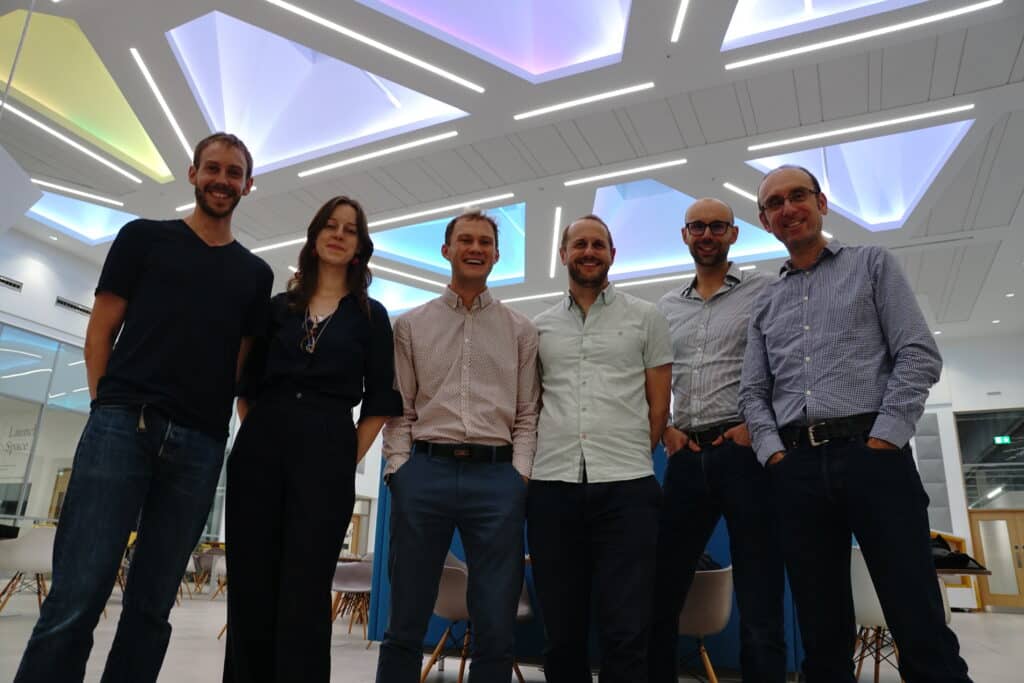
Russell Murchie, Founder and CTO of Nusku, joined Future Space in November 2022 after 17 years working as an engineer at Dyson.
“I left my previous job on Friday, started at Future Space on Monday, and had joined the Launch Space incubator by Tuesday!” he says. “Things move fast here, which is what you need when you’re developing a new product – in our case we’re looking to revolutionise how we heat our homes.”
“That was a year ago and since then we’ve accessed free support from the innovation team and their advisory network, worked with interns from UWE Bristol and received technical advice from university staff, as well as launching our pre-seed funding round with interest from investors and angel networks.”
Where it all began
The idea for Nusku originally began back in April 2022 when Russell was talking to a friend who works in the renewable energy business about why people do not seem to want heat pumps in their houses.
“There’s no real alternative to gas boilers at the moment in the UK, even though they will gradually be phased out and more environmentally-friendly solutions are needed. Heat pumps have been promised as the alternative for more than 20 years, so why does a homeowner who could afford one not want one?
“We got talking about what needs to happen to change this, to give a better offering to UK homes and the idea for reinventing them began to form.”
Russell Murchie, Founder and CTO, Nusku
Russell admits he initially saw it as a side project that he could advise on, with his friends in the industry taking the reins in producing the product.
As the idea took shape and they realised the need for speedy change in the industry due to environmental targets, they decided to join forces to set up a company focusing on replacing the fossil fuels used to heat homes with electrified heating systems in the UK market.
Getting a Fast Start Grant
Nusku was born – and it was the perfect candidate for an Innovate UK Fast Start Grant, supporting ‘affordable, adoptable and investable innovation in net zero and healthcare’.
Being awarded this grant allowed Russell to get the company off the ground and build the first iteration of the product in just six months. Nusku now employs four people and has a number of advisors who work in the renewable energy sector.
“I’ve never run a business before, so joining Future Space with the grant and the support of the team here – both the innovation team and the Launch Space incubator – was what we needed to kick-start the process quickly.
“We’re making a physical product, so the workshops here are perfect for us to build in. That said they are popular so we had to wait to get in. The planned expansion work has come at the right time for us to grow.
“We’re lucky to have our product based two minutes away at UWE Bristol’s School of Engineering, where we’re able to get support from the university’s technical team and use the space for testing.
“The plan is to have our own manufacturing room. We’re building an outdoor product, so we also need outdoor test space – Future Space has enough areas for us to do all of this.”
As well as physical space, Future Space has provided access to the right talent for Nusku to bring its idea to life.
Two design engineering interns joined the company through Future Space and a UWE funded programme to help design the second product prototype. One of these interns, Amy Stoker, had just graduated and is now working with the company full-time, alongside a graduate from The University of Bristol.
What’s next for Nusku?
Using heat pump technology, Nusku’s heating system will provide a replacement for gas combi-boilers which is easy to install and attractive. The ambition is for it to be the smartest, most connected and efficient on the market.
“We’ve just closed our pre-seed funding round with the aim of building a version of the product that we can take to a retailer – that’s what the next 12 months is all about.” says Russell.
Nusku is also applying for further grants with Innovate UK and the Department for Energy Security and Net Zero as the Government looks to hit its target for net zero by 2050.
